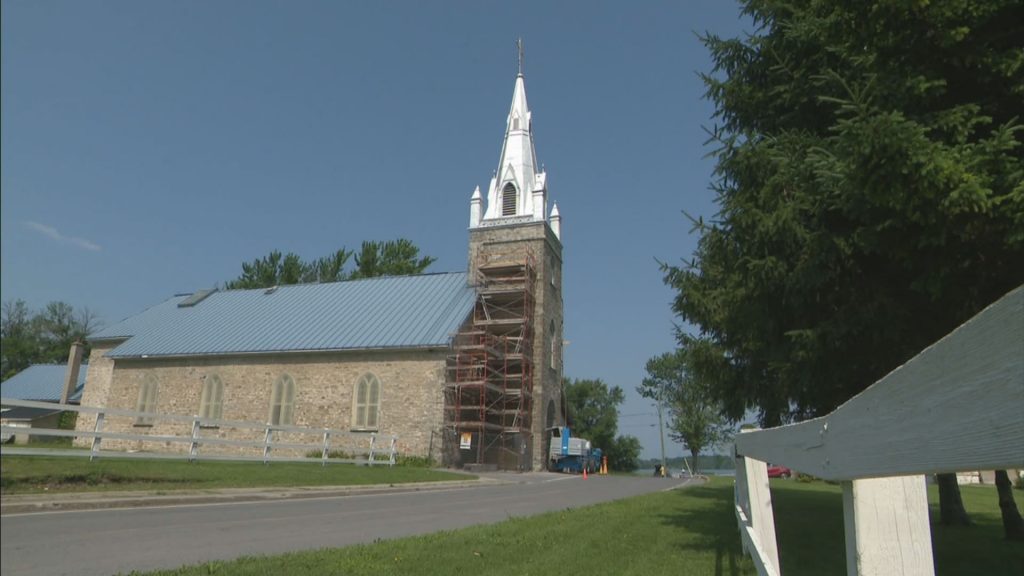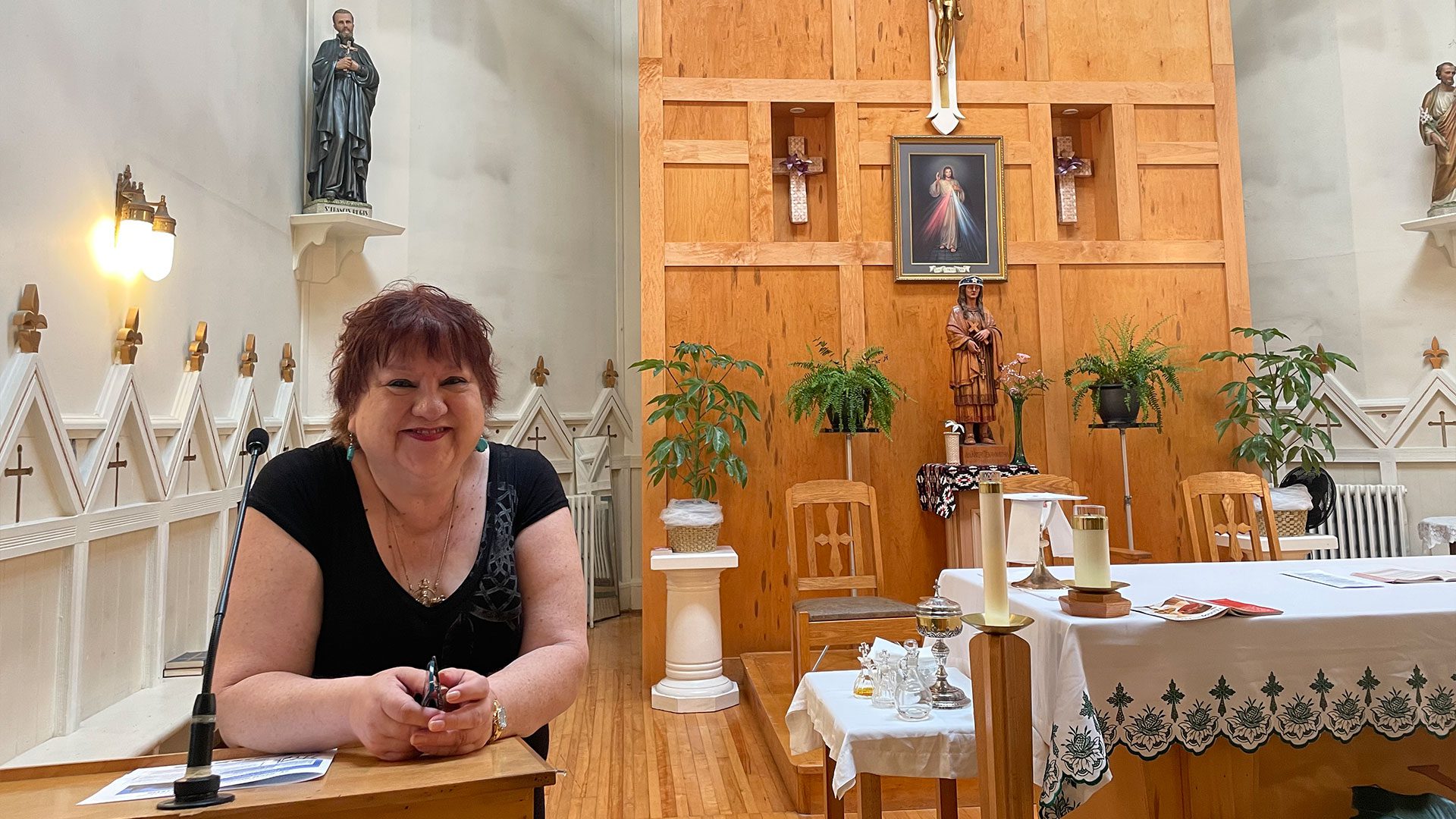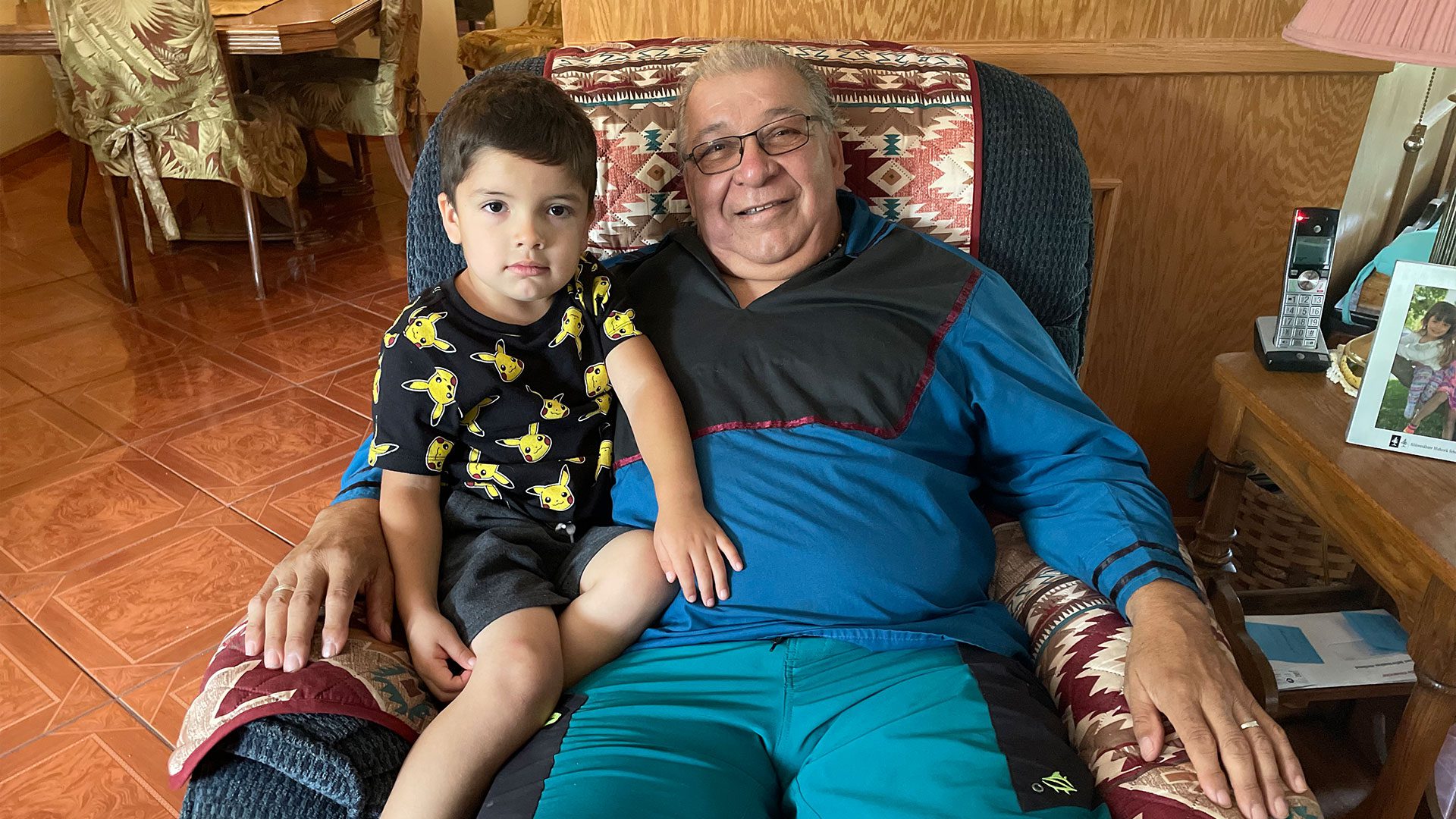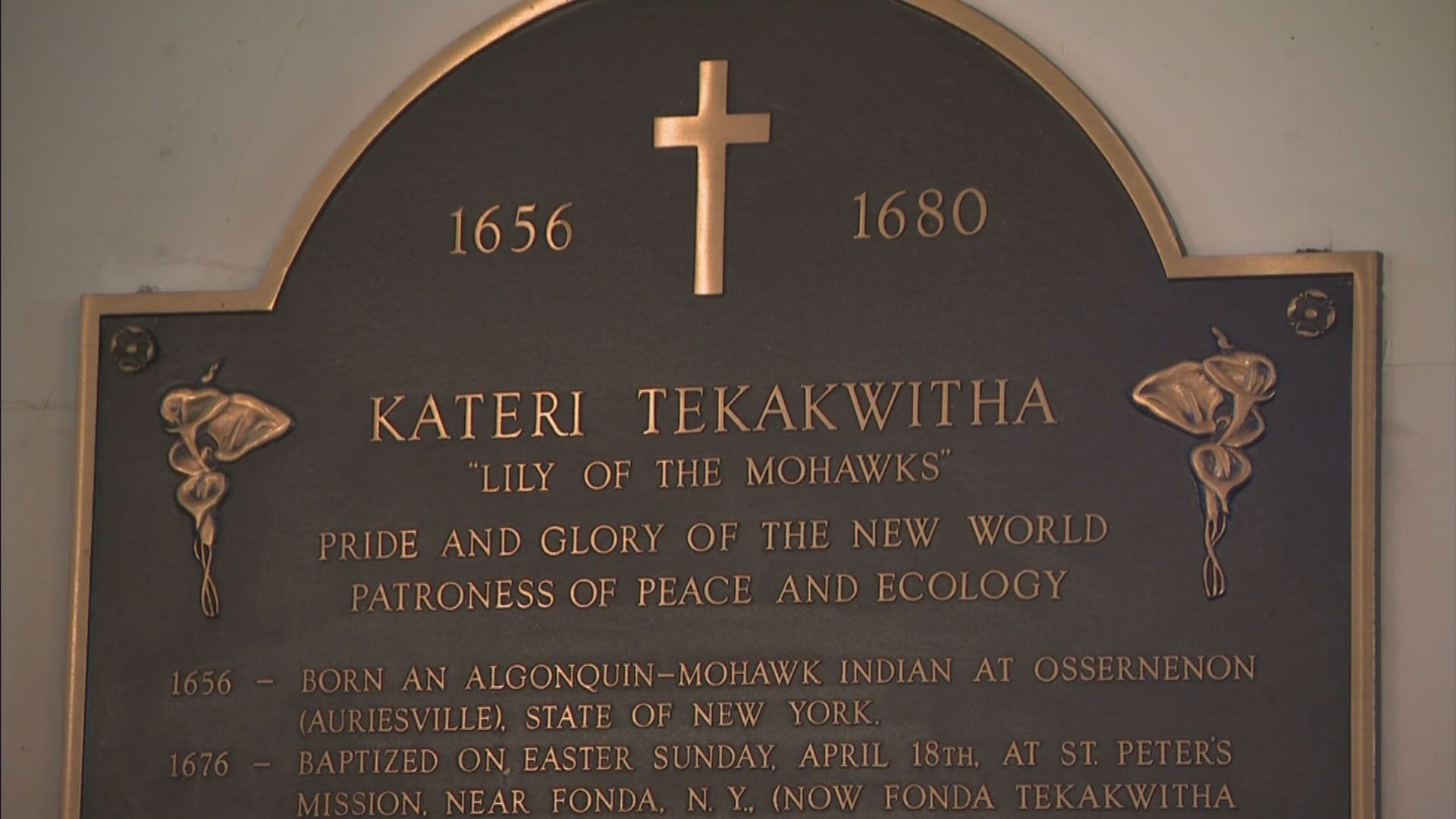
St. Regis Catholic Church is an iconic building in the Mohawk community of Akwesasne. Photo: APTN News
The Quebec government has given $115,000 to one of the oldest churches in Canada and not everyone is happy about it.
The St. Regis Catholic Church has been standing on Mohawk territory in Akwesasne since 1752.
The church’s lay minister, Rose-Alma McDonald, said the mostly Mohawk congregation numbers about 500 and the church is a community cornerstone for weddings, funerals and gatherings.
It also operated the St. Regis Day School, where survivor Robert White was punished for speaking his own language.
White feels the government money could be better spent elsewhere.
That “$115,000 would go a lot into the traditional programs, and programs to educate our youth on who we are, not who somebody wants us to be,” said White.

McDonald said repairs are badly needed to the aging building.
“The church is old, the stone is old, the water over the years was damaging the masonry,” she said, “and so they’re having to repair it and reseal it, otherwise it’s going to fall off, and we don’t want that with this beautiful church.”
McDonald commended the church for incorporating Mohawk cultural practice including incorporating images of their clans on their altar, mohawk prayer books and mohawk ceremonial practices. The church’s patron saint is Saint Kateri Tekakwitha, who represents traditional ecology, Indigenous peoples, and care for creation.
“Every other Sunday, all the prayers are sung in Mohawk, and so it’s very helpful, because I don’t speak Mohawk myself,” said McDonald.
“Because I’m hearing them sing the Our Father in Mohawk, now I’m learning how to sing it, and say it myself.”
The steeple
When the steeple needed necessary work to avoid crumbling back in 2018, McDonald began helping raise funds from the community to repair it.
“We were doing fundraising, like 100 bucks here, 50 bucks there. But then there was a former nun that was here for like 40 years, Sister Christine, and she wrote a book about the church,” said McDonald. “Some people donated a thousand dollars for the book.”
Despite raising nearly $200,000 from private donors, it wasn’t enough to cover the repairs, so McDonald and other churchgoers approached the Mohawk Council of Akwesasne (MCA) for more funding.
“As any community group comes to the Mohawk Council of Akwesasne, whether it be a church, an organization, a quilt club or what have you, we always look for ways to support them,” said MCA’s Grand Chief Abram Benedict.
“The church has been in this community for a very long time,” he said. “It has a history, a significance in the community, good and bad, I want to acknowledge that so we thought it was important to assist in finding funding to stabilize the building itself.”

The Quebec government visited Akwesasne in June to present the funding in an example of solidarity, according to the church’s pastor, Father Jerome Pastores, who is originally from the Philippines.
“When you say ‘church’, it’s the people,” said Pastores. “It’s very touching for me because people are still talking about residential schools.
“For the government to come here, wow. When everybody’s talking about reconciliation, that’s it, that’s what reconciliation is.”
After the announcement, people took to social media to celebrate or condemn the church.
“A symbol of genocide and land theft – get rid of it,” said one comment.
“Spit in the face of the ones murdered for religious purposes…how brainwashed do you have to be? My dad got smacked up for speaking his language but yeah let’s restore the oppression” said another.

Robert White, a survivor of the St. Regis day school in Akwesasne, believes that money could be better spent elsewhere.
White says he’s still healing from the pain caused by Catholic teachings.
“I’ve travelled around and I’ve gone in other Catholic churches,” said White. “Sometimes when I listen, it’s like a message of, ‘We can dominate, we can take over,’ and that’s still there today.”
Advocates and survivors called for the doctrine of discovery to be rescinded, which the Catholic Church only recently repudiated.
While White said he bears no ill will to Mohawks of the Catholic faith, he said the Quebec government’s decision to fund the church is a continuation of colonialism.
“It’s like an investment for their initiatives, I guess. The way I see it, that’s like me investing in your company. The government and the religion, the Catholic Church, they work together,” said White.
“You go right down to the papal bull, that all ties in. The initiative of them being set sail to come over and you can destroy whoever you want, you can kill whoever you want, because they’re not Christians, so it’s not a sin.”
McDonald said while she managed to avoid attending residential and day schools, she was deeply impacted by the stories from survivors.
After the Kamloops discovery, McDonald said “people came and put the shoes, hundreds and hundreds of shoes – in front of the church. And that makes it real, right? Because you’re looking at it and these are the shoes that represent the babies and the children that died.”
“Some of us, including myself, we kind of went through a faith crisis. But there was an Elder that told our bishop that the people that did those things weren’t God, they weren’t the church, they were humans. Humans with flaws and faults and big ones, but it wasn’t God. So our people have still been very faithful to the church,” said McDonald.









